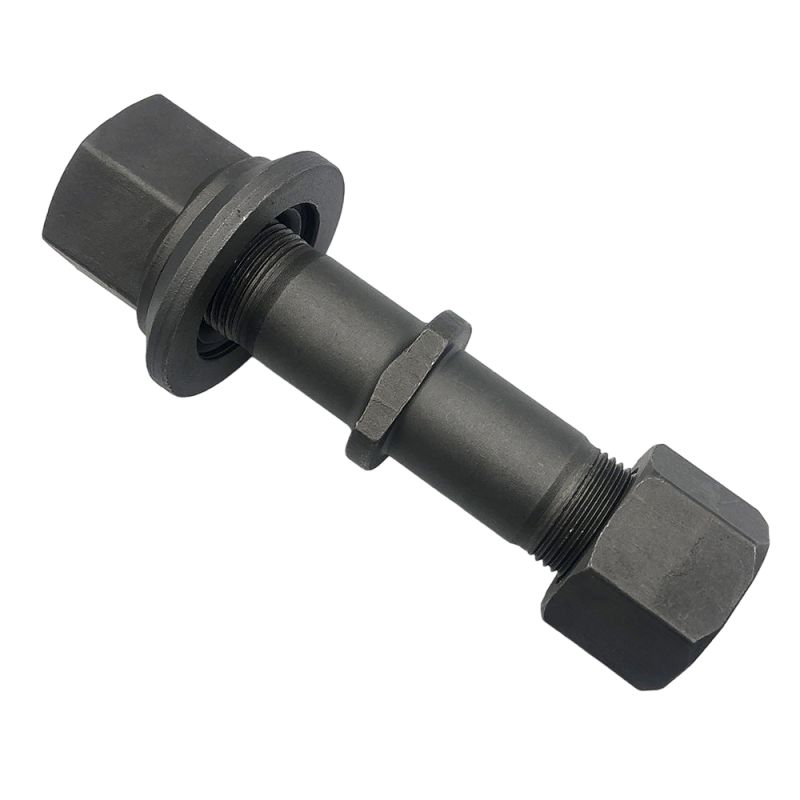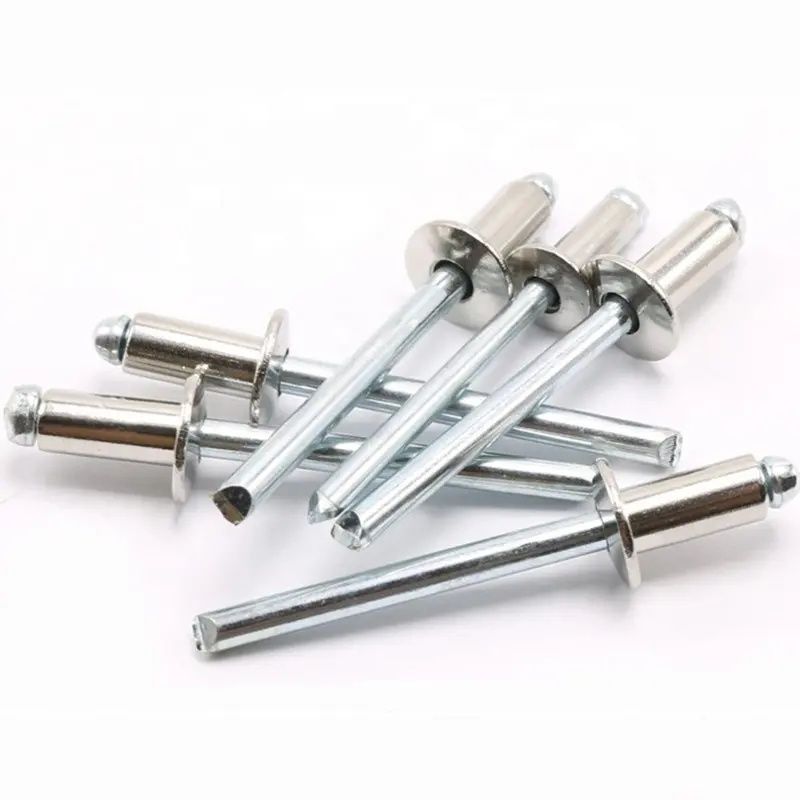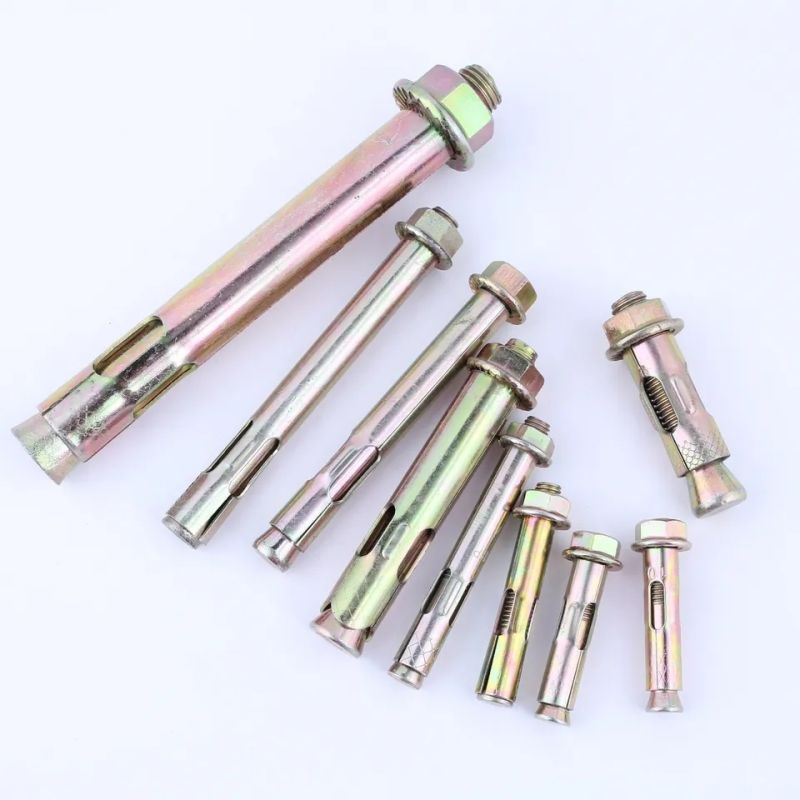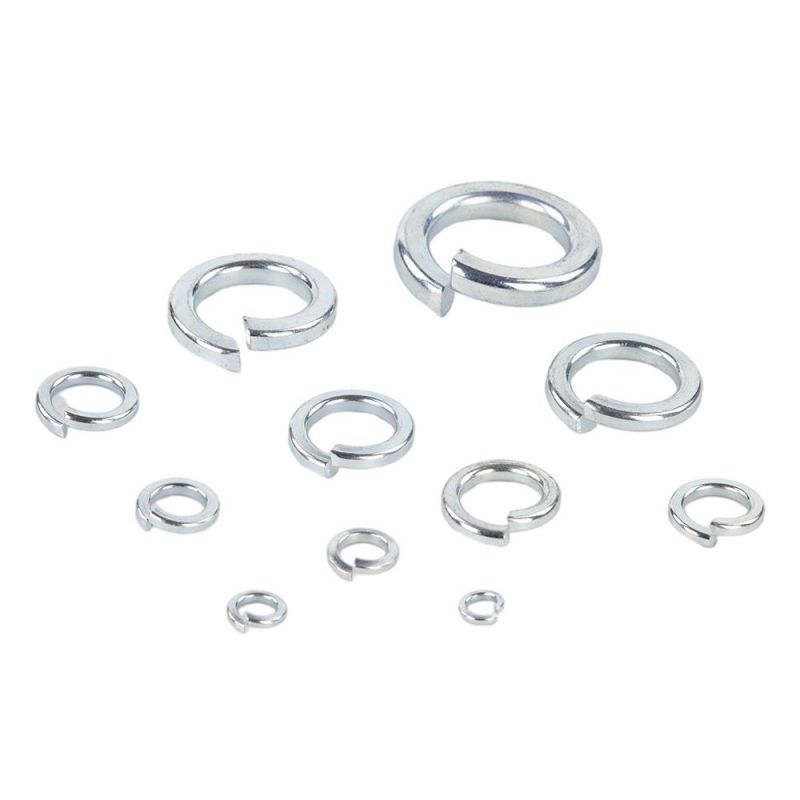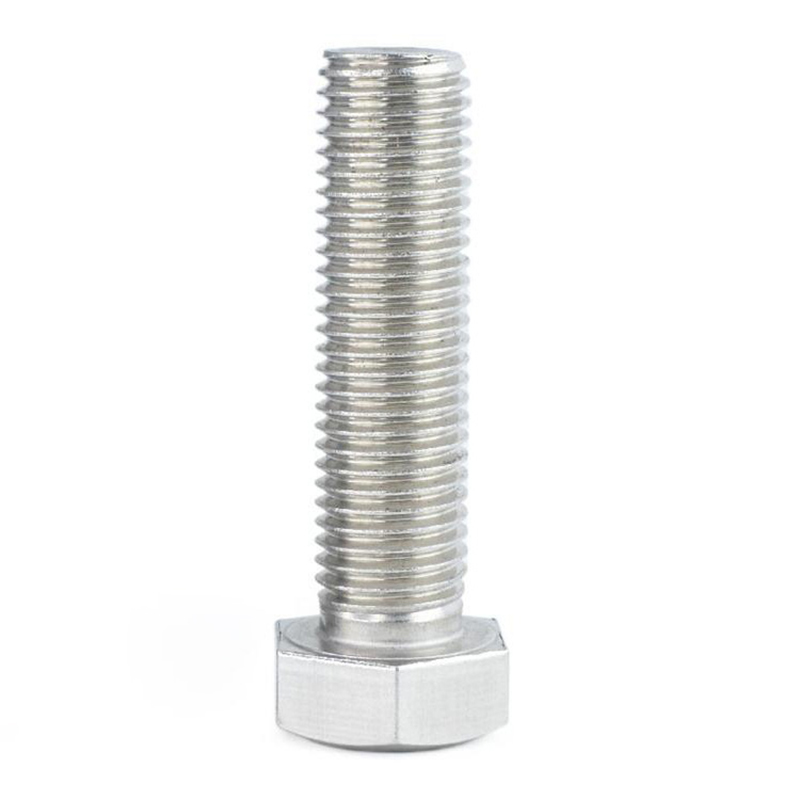Double Headed Selfapping Screw

In the field of mechanical equipment and industrial assembly, some key components require fasteners with high strength, precise dimensions and adaptability to specific working environments. Standard bolts cannot meet these stringent requirements in some scenarios, and non-standard stud bolts, with their customized design and versatility, are the ideal solution to meet special needs.
What are non-standard stud bolts?

Non-standard stud bolts are fasteners designed according to specific needs, with threads at both ends and a bare rod or full thread structure in the middle. This type of bolt is usually used in scenarios where double-end fixing or connection is required, such as high-pressure equipment, pipeline flange connections, and core component assembly of large industrial machinery.
Unlike standard stud bolts, non-standard stud bolts are completely tailored to customer needs in terms of materials, sizes, thread forms and surface treatments to meet higher performance requirements.
Features of non-standard stud bolts

Customized size
Non-standard stud bolts can be precisely customized in length, diameter and thread distribution according to the use environment to ensure perfect fit with the equipment.
Length: According to the specific requirements of the assembly location, the length can be accurate to the millimeter level.
Diameter: A larger diameter can be selected to increase the tensile strength, suitable for high-load scenarios.
Material diversity
High-temperature resistant materials: such as chromium-molybdenum alloy steel or nickel-based alloys, suitable for high-temperature environments.
Corrosion-resistant materials: stainless steel or special alloys, used in chemical or marine engineering fields.
High-strength materials: carbon steel or alloy steel after heat treatment, used in scenarios with high dynamic loads.
Optional thread form
Non-standard stud bolts can be designed as single-end coarse threads, double-end fine threads or other special threads to ensure the best tightening effect in specific assembly environments.
Refined surface treatment
Anti-corrosion coating: galvanized, Dacromet or hot-dip galvanized, used in outdoor or humid environments.
Anti-loosening treatment: thread locking glue coating or knurling design to ensure stability during long-term use.
Typical application scenarios

High-pressure flange connection
In the fixing of high-pressure pipelines or container flanges, non-standard stud bolts ensure the sealing and safety of the connection through precise dimensions and high-strength materials. , highlight the key points, and must not be comprehensive; be inspiring and appealing.
Fixing of core components of industrial equipment
In large-scale mechanical equipment, non-standard stud bolts are used to fix key components such as engines, transmissions and supporting structures, providing stability and high load capacity.
Maintenance and modification of special equipment
Non-standard stud bolts are widely used in equipment upgrade or maintenance projects, especially when the original equipment requires special specifications of fasteners to adapt to the modification.
Nuclear and wind power equipment
In nuclear and wind power equipment, non-standard stud bolts are used to fix complex components due to their high strength and durability, and can withstand the test of extreme environments.
Production process and quality control

Material preparation
Select the appropriate material according to the design requirements and cut it into precise lengths.
CNC machining
Process the threads and intermediate polished rods through lathes or CNC machining equipment to ensure that each part meets the design requirements.
Heat treatment
Quench and temper the bolts to improve hardness, strength and wear resistance.
Surface treatment
Perform anti-corrosion treatment such as galvanizing, phosphating or Dacromet treatment to improve the durability and environmental resistance of the bolts.
Quality inspection
Use professional inspection equipment to test thread accuracy, dimensional tolerance and mechanical properties to ensure that the product meets the drawings and customer requirements.
Advantages of non-standard stud bolts

Fully customized: meet the needs of various special equipment and working conditions.
High performance: the diversity of materials and processes ensures its excellent mechanical properties.
Flexible adaptability: can provide accurate connection solutions for complex assembly designs.
Non-standard stud bolts have become an important tool for solving special industrial needs with their unique design and excellent performance. It not only improves the stability and safety of equipment, but also provides reliable support for complex engineering projects. In today's rapidly developing industrial field, the customized service of non-standard stud bolts is constantly promoting technological innovation and injecting new impetus into the development of various industries.
If you are looking for bolts that can fully adapt to your equipment, non-standard stud bolts are undoubtedly an ideal choice. If you have any questions, please consult us Jiangxin Industry!


